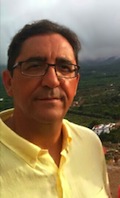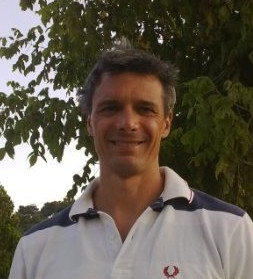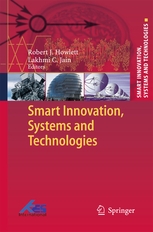Keynote Speakers
We are very pleased to have acquired the services of an excellent selection of keynote speakers for the symposium The speakers and the titles of their talks are shown below.
Jair M. Abe
University of Sao Paulo & Paulista University, BrazilParaconsistent Logic and its Implication to AI and Technology
More details ...
Antonio Fernández-Caballero
Universidad de Castilla-La Mancha, SpainSmart Health Environments and Ambient Intelligence at the Service of Emotion Detection and Regulation
More details ...
Mauro Gatti
IBM, ItalyThe application of process mining and text mining to the study of the clinical pathway for stroke management
More details ...
Vladimir Uskov
Bradley University, USASmart Education: A Synergetic Approach by SDF Community
More details ...
Jair M. Abe
University of Sao Paulo & Paulista University, BrazilParaconsistent Logic and its Implication to AI and Technology
Abstract:
Non-classical logics have played an important role in AI and Technology. In this talk we present an overview of Paraconsistent Annotated Logic and some its important applications. Roughly such systems allow to deal with imprecise, inconsistent and incomplete systems of information. We show its usefulness in Biomedicine, Automation, Decision-making themes, among others.

Biography:
Jair Minoro Abe received B.A. and MSc in Pure Mathematics - University of Sao Paulo, Brazil. Also received the Doctor degree and Livre-Docente title by the same University. He is currently coordinator of Logic Area of Institute of Advanced Studies - University of Sao Paulo - Brazil and Full Professor at Paulista University - Brazil. His research interest topics include Paracnsistent Annotated Logics and AI, ANN in Biomedicine and Automation, among others. He is Senior Member of IEEE.
Antonio Fernández-Caballero
Universidad de Castilla-La Mancha, SpainSmart Health Environments and Ambient Intelligence at the Service of Emotion Detection and Regulation
Abstract:
A health environment is, in general, any location where healthcare is provided. The term usually includes hospitals, clinics, outpatient care centres, and specialised care centres, such as birthing and psychiatric care centres. In this sense, the proper home of a person suffering from some kind of disease, be it physical or mental, can also be considered a health environment. In addition, a smart environment (SmE) is a place that has been enriched with technology (sensors, processors, actuators, and other devices interconnected through a network) to enhance the services provided to humans. A smart health environment (SmHE) can be seen as an extension of a traditional SmE oriented towards offering an enhanced level of health to the patients. Ambient Intelligence (AmI) enhances the global behaviour of such environments by providing high level functionality in terms of sensitivity, adaptability, and responsiveness to human needs, habits, gestures, and emotions.
This talk provides an overview of the speaker's experience on AmI-based emotion detection and regulation in SmHE. In first place, SmHE as envisioned by the speaker's research team should be able to continuously monitor a patient's emotional state by analysing his/her physiological signals, facial expression and overall activities. Then, the system provides the best-tailored actions in the environment to regulate these emotions towards a positive mood through music and colour/light. The talk describes the three main parts of such architecture based on Artificial Intelligence techniques, which are "emotion detection", "emotion regulation" and "emotion feedback control".

Biography:
Antonio Fernández-Caballero received his MS degree in Computer Science from Universidad Politécnica de Madrid, Spain, in 1993, and his PhD from the Department of Artificial Intelligence of the Universidad Nacional de Educación a Distancia, Spain, in 2001. He is Full Professor at the Department of Computer Science at Universidad de Castilla-La Mancha. He is the director of the n&aIS (natural and artificial Interaction Systems) research group at the Albacete Research Institute of Informatics. His research interests are in Artificial Intelligence, Computer Vision, Sensor Fusion, Human-Computer Interaction, and Affective Computing. Antonio Fernández-Caballero is Associate Editor of Pattern Recognition Letters, Topic Editor-in-Chief of International Journal of Advanced Robotic Systems and Specialty-Chief-Editor of Frontiers in Robotics and AI. He has authored more than 300 peer-reviewed papers.
Mauro Gatti
IBM, ItalyThe application of process mining and text mining to the study of the clinical pathway for stroke management
Abstract:
Healthcare is important, expensive, complex and produce a huge amount of data. So it is not surprising in the new gold (data) mining era that large companies are investing resources and money to turn healthcare data into information nuggets. Emphasis is on textual and omic data but it is quite likely that it is only from the fusion of different data and methods that value can ultimately be delivered to healthcare stakeholders. IBM has a broad strategy that encompasses areas as different as electronic medical records analysis and histopathological image analysis. Through acquisitions, research and development IBM is developing a broad portfolio in areas as diverse as population health management and clinical decision support systems.
The focus of our team is on combining process and text mining with the ultimate objective of improving the effectiveness of health care. We see hospitals as dynamical systems whose space can be obtained through process mining and whose dynamics can be learned through the combination of data mining and other techniques. However, hospitals are first and foremost social systems. Data can be unreliable, analyses can be undesired, turning analyses into actions can be hindered. Factoring in social aspects from the very beginning is crucial for project success.
In the presentation we shall go through the story of one of the projects we are have been working in the latest year whose goal was to learn from data the clinical stroke process and to spot differences between the expected and real process.

Biography:
Mauro Gatti is a member of the IBM Italy Research as a Service team and a certified architect with twenty years of experience in multiple different areas. His current focus is on healthcare notably on the application of analytics to improve healthcare process. He holds a PhD in theoretical physics.
Vladimir Uskov
Bradley University, USASmart Education: A Synergetic Approach by SDF Community
Abstract:
Modern sophisticated smart devices, smart systems, and smart technologies create unique and unprecedented opportunities for academic and training organizations in terms of new approaches to education, learning and teaching strategies, services to on-campus and remote/online students, set-ups of modern classrooms and labs. Resaerch&Markets predicts that the global smart education market to grow at a CAGR of 15.45% during the period 2016-2020. Markets&Markets forecasts the global smart education & learning market to grow from $105.23 Billion in 2015 to $446.85 Billion in 2020, at a Compound Annual Growth Rate (CAGR) of 24.4%. Therefore, it is necessary to perform active research and obtain a clear understanding of what main features, components, technologies, software, hardware, pedagogy, faculty, etc. will be required by smart education in the near future. This presentation is focused on smart education, including 1) smart education features (adaptation, sensing (awareness), inferring (logical reasoning, analytics), self-learning, anticipation, and self-organization), 2) smart classrooms of the 1st and 2nd generations, 3) software systems for smart education (Web-lecturing systems, collaborative Web-based communications systems, smart learning analytics systems, etc.), 4) hardware systems for smart education (smart devices, panoramic video cameras, SMART boards, smart card readers, biometric-based access control devices, robotic controllers and actuators, etc.), 5) technologies to support smart education (Internet-of-Things, cloud computing, ambient intelligence, smart agents, Web-lecturing technology, augmented and virtual reality, physical and cyber worlds, wireless sensor networking, context awareness, etc.); 6) smart pedagogy (learning-by-doing, collaborative learning, e-books, learning analytics, adaptive teaching, flipped classrooms, etc.), 7) smart faculty (profile, requirements, "smart technology- faculty" relationship), and 8) cost estimates of smart classroom implementation in a traditional university. It is expected that the outcomes of this presentation will motivate educators-innovators and experts in smart systems, smart technology, smart agent, intelligent decision technologies, smart software and smart hardware areas to work together towards a transformation of traditional education into smart education, and traditional university into a smart university.

Biography:
Dr. Vladimir Uskov is a professor of Computer Science and Information Systems and director of the InterLabs Research Institute on Advanced Technology Applications in Education at Bradley University (Peoria, IL, U.S.A.).
Dr. Uskov obtained his Ph.D. degree from Moscow Aviation Institute - Technical University in 1986. His areas of expertise include but are not limited to 1) Smart Education, Smart University, Smart Classroom (2008-present), 2) Web-Based Education, Online Education and e-Learning (1995 - present), 3) Applications of Information Technologies in Education (1985 - present), and 4) traditional and Agile Software Engineering and Project Management (1980 - present).
Dr. Uskov has more than 325 professional publications, including 3 textbooks, 5 chapter books, and 51 published articles in referred journals in 3 different languages. Dr. Uskov received numerous grants in his areas of expertise from the National Science Foundation (NSF), Microsoft Corp., and various governmental institutions (Russia, Japan, USA, Germany, Switzerland, France, Holland, Italy, Finland, etc.), including major NSF (U.S.A.) grants ## 0420506, 0196015, 9950029 and 0002219.
Dr. Uskov is a Senior Member of the IEEE (2004). Dr. Uskov was a chair of the annual international conferences on Web-Based Education (WBE-2002 - WBE-2013), and Computers and Advanced Technology in Education (CATE-2002 - CATE-2013), and Editor-in-Chief of the Advanced Technology for Learning (ATL) international journal (2004-2008). From 2014, Dr. Uskov is a chair of the annual international conference on Smart Education and e-Learning (SEEL).



